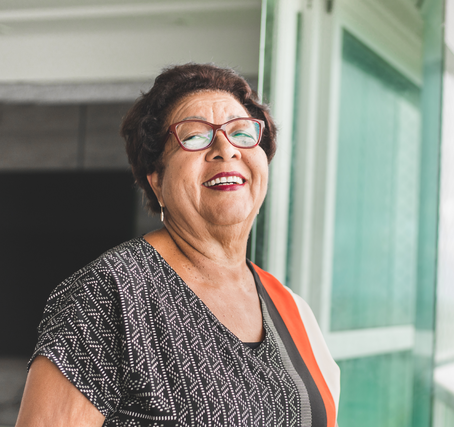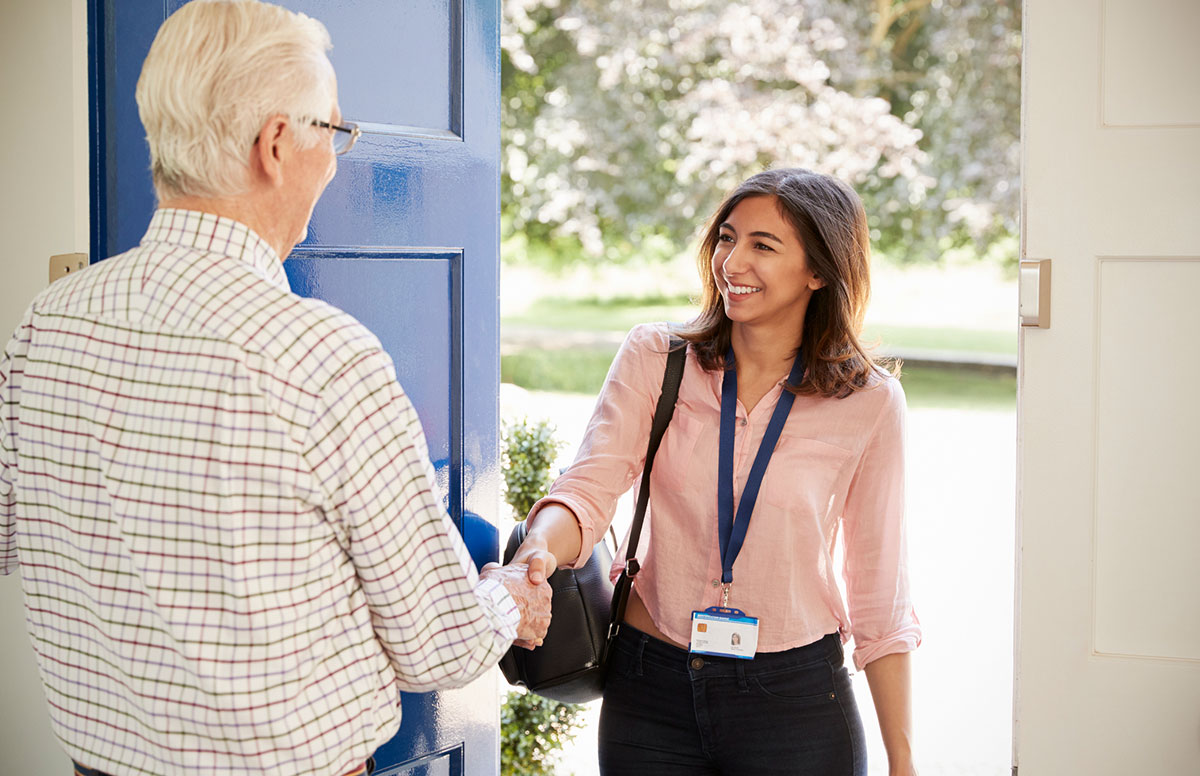Interview with Dr. Paul Reinbold -April 13, 2022
Dr. Paul Reinbold, Vice President & Chief Medical Director at Acts Retirement-Life Communities, joined the LeadingAge Coronavirus Update Call on April 13, 2022. He responded to questions from Jodi Eyigor and from callers. A summary of the interview follows.
Q: Please tell us about Acts Retirement – Life Communities.
A: We are headquartered in Philadelphia, PA and are the largest owner and operator of Life Plan Communities in the country – we have 26 across several states. In addition to being the Chief Medical Director for the system, I am also medical director for our Bailey Chase community in Easton, MD.
Q: We know about the FDA authorization and the CDC recommendations around second boosters, but would like you to help us understand what these mean?
A: What happened is that in response to an Israeli study suggesting benefit from a second booster, the FDA and the CDC moved to allow a second booster vaccine. There has not been a strong position from either organization at this point. The CDC said there was benefit for those people over 50 who are immunocompromised or those over age 65. It is not a clear recommendation that everyone for whom a second booster is approved should get one. At this point it is a choice.
Q: Is a second booster required to be considered “up to date” in vaccinations?
A: The recommendation is not that strong – the second booster is not included in the current definition of up to date. People aged twelve and over who are immunocompromised may choose to receive a second booster and older people may also choose one. It is presented as a choice between an individual and their provider. People at higher risk are more likely to benefit from a second booster, but that benefit has not yet been quantified so it is an individual decision.
Q: We get questions about some of the vaccine nomenclature. Can you help us distinguish between boosters, additional doses, etc.
A: The third dose nomenclature is used when an immunocompromised person has had two doses of mRNA vaccines and then received a third dose given at least four weeks after the second dose. When the booster was authorized, it was for three months after being fully vaccinated. If you received three doses as an immunocompromised person, then you could get a fourth dose. People over 50 are now allowed to get a second booster. An immunocompromised person who has had four doses could get a fifth dose.
Q: What considerations would you suggest to determine whether a person should get another booster, and what timing would you recommend?
A: First, we should look at the strength and efficacy of the initial full vaccination which wanes over time but continues to be mostly efficacious against hospitalization and death. Unvaccinated people should get vaccinated. However, if a person is only fully vaccinated, they should get their first booster. Second, we need to look at the environment. Right now, cases everywhere but in the Northeast region are lower than they have been in a long while (10/100,000). There is a slight uptick in the Northeast region (16/100,000) but they are overall still at a low level.
With flu, we try to time the vaccine for six to eight weeks prior to the flu season so that the vaccine’s efficacy is well-timed. While we don’t know that precisely for COVID, we can look at the environment and get clues. There is general agreement that people who are immunocompromised, those with multiple comorbidities, and the oldest old should probably be recommended to get a second booster based on their own choices. For younger and healthier people, we suspect that it might be best to time a second booster in the fall in the potential event of a rise in cases in the winter.
Q: What about people who have recently had cases of COVID-19?
A: A different study from Israel showed that there was little benefit for younger healthcare workers to receive a second booster. The CDC has indicated that a first booster in someone with previous infection did reduce morbidity and mortality. A booster in addition to infection is superior to either one alone. I would still go by individual risk and most everyone could benefit from at least an initial booster.
Q: Say I am a resident who is vaccinated and boosted and then I get a COVID infection. Would I want to wait to get my second booster?
A: The recommendation to receive any COVID vaccine, is that once you are recovered from infection, you can get a vaccine or a booster. What we are seeing is that immunity wanes over time. It might not be unreasonable to consider an infection equal to a booster, so it might make sense to wait a few months before getting the second booster. Studies are not entirely clear on this yet.
Q: For the communication your organization is doing – how are you thinking about messaging this and how will people receive access to the vaccine?
A: We believe that people over 50 who are immunocompromised and those over 65 should consider a second booster. We will apprise people of that option. We have partnered with CVS/ Omnicare for the first booster through a facility supply model. Omnicare provides the vaccine and Acts administers it. We do that for any vaccine needed – whether initial vaccinations, or subsequent boosters. All of our communities have also obtained certification to receive vaccines from state health departments. We will notify residents and their agents in skilled nursing and in assisted living that we do offer vaccines and consider them to be at high risk and will give them the opportunity to choose a second booster. We will document their choices. If we see significant increases in illnesses or hospitalizations or a changing environmental context, we will advise that they receive the booster, as we would if the CDC changes their position.
Q: In addition to considering individual risk – if you are a healthy young caregiver but taking care of an elderly or immunocompromised family member should you consider a second booster?
A: The Initial recommendation is that the person be fully vaccinated and have the first booster shot. The New England Journal of Medicine study indicated that there is not a lot of difference in healthy populations between the first and second booster. There are some small differences in getting infected and transmitting but that window is small – about eight weeks for this reduced transmissibility. But we don’t see being able to boost people every two months on an ongoing basis. A more beneficial option would be to consider the second booster if caseloads were increasing.
We also need to talk about the fact that we now have effective treatments for COVID which is very different from those early days. Paxlovid can reduce hospitalization and death by 90% – so we now have alternatives.
Q: What is your thinking on whether to boost with the same vaccine one has had before, or to switch to a different one?
A: Studies are being done to try to answer that question, but I haven’t yet seen definitive results. I have seen papers indicating that there may be some benefit to crossing over. For people who initially had the J & J vaccine it is recommended that the booster be with an mRNA vaccine. Since there are some differences between vaccines, it is likely that a person would gain a broader range of antibodies by using a mix and match approach.
Q: How do levels of antibodies factor into this discussion?
A: The CDC has said that antibody levels cannot be correlated with level of immunity from COVID for a variety of reasons. In this case they are not neutralizing antibodies and don’t point directly to efficacy against COVID.
Q: If a booster was given last fall to a caregiver and the caregiver is immunocompromised with cancer but has been treated, would you recommend a booster?
A: Yes, it is recommended for people who are immunocompromised.
Q: What is coming next with vaccines and calibration to new variants
A: The real push is to develop a vaccine that is not tied to the spike protein where mutations are more likely to occur. We want to develop one that targets beyond the spikes and would be a pan-SARS vaccine. Another approach is to try to target a specific variant but that is challenging as we don’t know what the next variant will be. It is different from flu where we can look at winter in other countries and see what strains are transmitting and develop specific flu vaccines to target them. Both Moderna and Pfizer are developing specific vaccines against omicron, but there is no way of knowing what the next variants will be. The original vaccines were efficacious against early variants and have done well against subsequent variants. A pan-SARS vaccine is really the goal.

Most Recommended
July 01, 2025
 Budget Reconciliation 2025
Budget Reconciliation 2025
June 27, 2025
Pathways for Foreign-Born Workers
Recently Added
July 02, 2025
 Analysis: Home Health CY 2026 Prospective Payment Rule
Analysis: Home Health CY 2026 Prospective Payment Rule
July 01, 2025



